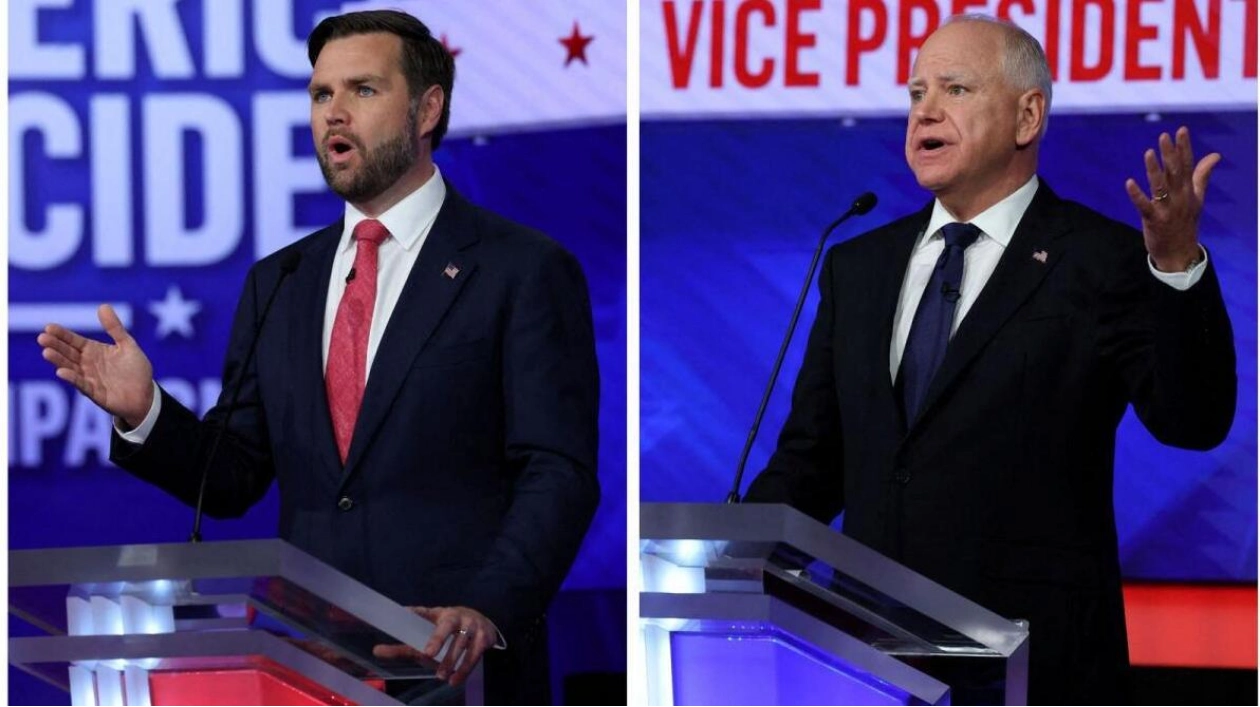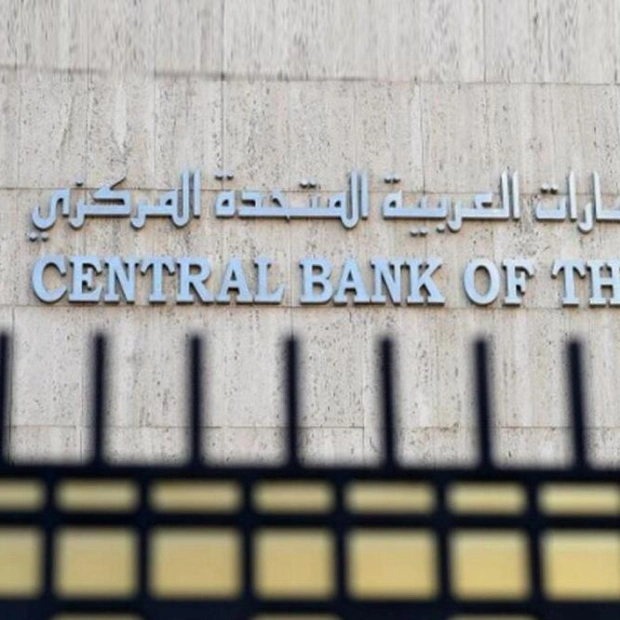US Senator JD Vance, chosen by Republican Donald Trump as his vice-presidential running mate, faced off against Minnesota Governor Tim Walz, who was selected by Democrat Kamala Harris to be her No. 2, in a nationally televised debate on Tuesday. This debate is likely the final one of the 2024 presidential campaign, potentially adding extra significance ahead of the November 5 election. Here are some key points from the event in New York:
The anticipated brawl did not materialize. Vance's advisors had predicted a fierce confrontation, with the senator expected to criticize Walz for misrepresenting his military record and failing to control the 2020 Minneapolis riots. Walz, on the other hand, planned to portray Vance as a spineless sycophant who altered his core beliefs to appease Trump. Instead, the candidates engaged in mostly polite exchanges, a surprising shift in tone after the contentious showdown between Harris and Trump just three weeks prior. Both men frequently acknowledged the other's valid points and expressed gratitude.
After the debate, they embraced warmly, shaking hands and patting each other on the back. The lack of heated moments means the debate will likely be quickly forgotten with five weeks remaining until the election, following the typical fate of vice-presidential debates. However, Trump could not let the amicable atmosphere persist. Immediately after the debate, he posted on social media that 'Walz was a Low IQ Disaster — Very much like Kamala.'
Vance, on stage, embodied the image the Trump campaign envisioned when he was selected in July. The 40-year-old first-term senator and best-selling author of 'Hillbilly Elegy' was meant to serve as an articulate and rational voice for Trump’s Make American Great Again movement and potentially become a generational torchbearer. However, Vance's campaign roll-out was rocky, facing online ridicule and serving mostly as Trump’s attack dog. The headlines were predominantly negative, and his approval ratings suffered.
On Tuesday, Vance largely maintained a positive message while advocating for Trump. He spoke about making the American dream 'attainable once again' and deftly addressed a question on climate change by arguing for increased US energy production. He also detailed the rationale behind Trump’s aggressive protectionist trade policies, stating that experts were 'wrong' in believing increased foreign trade would benefit the US middle class.
As the evening progressed, it became clear that the Trump campaign's goal for this debate was not to smear Walz but to make Trump more palatable to viewers at home. As one strategist noted, people do not vote for the vice presidential nominee.
The debate did grow heated towards the end, when most Americans had likely switched off or gone to sleep. Walz demanded that Vance agree to abide by the election results and commit to a peaceful transfer of power. He also asked Vance whether Trump lost the 2020 election. Vance replied, 'Tim, I'm focused on the future,' to which Walz shot back, 'That is a damning non-answer.' Walz pointed out that Vance was only on the stage because Trump severed ties with his former vice-president, Mike Pence, for certifying the last election results.
The first question of the debate related to the ongoing conflict in the Middle East, asking both men if they would support a preemptive strike by Israel on Iran to disrupt its nuclear program. Neither candidate was eager to answer. Walz visibly dodged the question, pivoting to critique Trump's record during his four years in office. Vance, after describing his personal background, eventually circled back to the question, stating that a second Trump administration would support Israel's decision on the matter.
Throughout the debate, Vance implied that Harris, as vice-president, has been a primary decision maker in the White House on issues such as immigration and the war in Gaza. He referred to the 'administration of Kamala Harris' and later mentioned when Harris 'came into office.' This strategy is an attempt to make Harris inherit Biden’s political liabilities.
Vance attempted to deliver a 'compassionate conservative' message on abortion to counter perceptions that the Republican ticket's hardline stance on reproductive rights could cost them votes. He sidestepped some of his past remarks on the issue, claiming he did not support a national abortion ban after previously suggesting he favored making the procedure illegal across the country. Vance tried to make the issue personal, mentioning young women he knew who had unplanned pregnancies and decided to terminate them.
Both Walz and Vance tried to explain away past statements that undercut their credibility. For Walz, it was recent media reports that he was not in Hong Kong in June 1989 during the Tiananmen Square uprising, despite having said several times he was there on a teaching trip. Vance was again asked to reconcile his past criticism of Trump, including comparing him to Adolf Hitler, with his current position as No. 2 on the Republican ticket.






